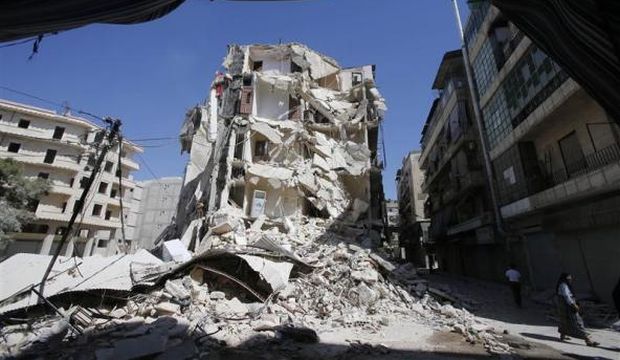An Egyptian television anchorwoman recently expressed her disapproval of a new development in social media live on air. With some shock—and with an intensity bordering on the contrived—the anchorwoman denounced the use by young Egyptians of a certain hashtag as highly irresponsible.
The phrase (in Arabic), “Better off than Syria or Iraq,” is being used increasingly often now among Egyptians attempting to make light of the current dire situation in their country—the constant power cuts, its economic troubles and political turbulence. They are saying “it could be worse,” in other words.
The anchorwoman had barely apologized to viewers for helping publicize the phrase when her male colleague dutifully took up the gauntlet. He blamed the youth using the hashtag for the ills currently befalling Egypt—labeling them as “lazy”—and said that if they had been properly educated and had worked hard “we would not be in this garbage.” As he shouted this to his audience, his face contorted with rage and all the visible signs of his irritability were etched firmly on it.
The truth is that what this famous media personality did, while certainly unprofessional, was not necessarily outside the bounds of the “normal.” The phenomenon of a television presenter lashing out at those they do not agree with—and sometimes even whole countries and peoples—live on air in the name of “national duty” has become something audiences are now very much used to.
This disease is now spreading rapidly elsewhere, but it appears to be especially prevalent in Egypt. It seems the egos of some of the country’s media figures have become so inflated that these so-called professionals see it fit to abandon their profession’s main tenets when it suits them, and deluding both themselves and their audiences that their “journalistic duty” and the current tough stage the country is passing through allows them to air in public their immaturity and boorishness.
Generalizing, defamation, incitement; these are but the hallmarks of the journalism profession today—but they are also the “ABCs” of nationalism, which all must learn and gain from.
This unprofessional conduct benefits from the idiocies of political Islam and its insane program of using violence to gain people’s acquiescence and servility. Today, the Islamic State of Iraq and Syria’s (ISIS) atrocities seem to have presented a priceless gift to these people, one entirely in keeping with the zeitgeist.
After all, this is not the time for freedom, or for improving society; let’s forget all about justice and fairness; let the activists rot in their prison cells; let’s slap college professors and opposition figures with travel bans; let’s ban protests; squeeze the life out of political satire and humor.
Do you not see ISIS for what it is, and what it is doing in Syria and Iraq?
Whoever is spreading this phrase intends to scare people. When we are scared we don’t ask many questions, and we don’t grumble or complain. After all, according to this logic, whoever grumbles and complains is an ISIS sympathizer, a traitor responsible for all the ills that have befallen us. There is no one better suited than well-known faces such as those in the media to deliver these messages, to play the role of the one who raises the alarm.
I have no qualms with a media figure castigating his audience for not knowing their own good. But according to him, and others like him working in the media, satire is part of the conspiracy, and those who use it are ignorant and being embroiled in subversive plots.
But who said ISIS had one face only?

Trackbacks/Pingbacks